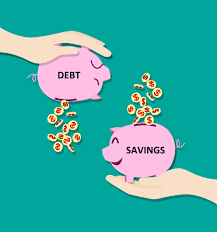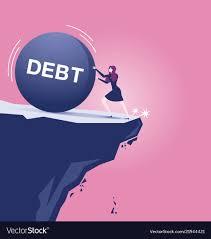Save On Debts
Refinance your home or automobile at a lower rate to save money over the life of the loan and lower your monthly payment.
If your student loans are locked in at a high-interest rate, figure out whether it makes sense to consolidate all or some of them.
281
1.52K reads
The idea is part of this collection:
Learn more about moneyandinvestments with this collection
How to create a diversified portfolio
How to analyze stocks and bonds
Understanding the basics of investing
Related collections
Similar ideas to Save On Debts
Consolidate Debts
If you have debts with a high-interest rate, a balance transfer might be a good option and even offer perks such as 0% APR and rewards programs. Ensure you consider the balance transfer fees, and pay down the entire transferred balance during the introductory period if possible.
I...
How to Keep Debt at Bay
- Paying off the little debts can give you confidence to tackle larger ones. It’s recommended to focus on debts with the higher interest rates, but sometimes a moral boost is worth it.
- Don’t cosign loans. If the borrower misses a payment, your credit score plunges and the...
5 Ways To Get Out Of Debt
- Do a personal finance assessment. Ask what's coming in, what's going out, where's it going, and what's left. That is all you need to know.
- Proactively try to negotiate lower interest rates on your debts.
- Make extra payments
Read & Learn
20x Faster
without
deepstash
with
deepstash
with
deepstash
Personalized microlearning
—
100+ Learning Journeys
—
Access to 200,000+ ideas
—
Access to the mobile app
—
Unlimited idea saving
—
—
Unlimited history
—
—
Unlimited listening to ideas
—
—
Downloading & offline access
—
—
Supercharge your mind with one idea per day
Enter your email and spend 1 minute every day to learn something new.
I agree to receive email updates


